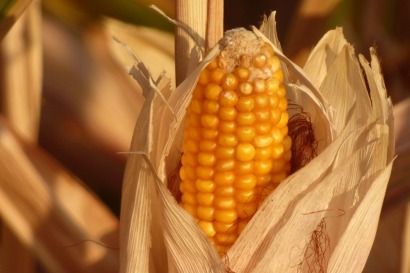
Fischer's remarks came during an appearance before the committee by Michael Regan, administrator of the Environmental Protection Agency.
The target of her ire was the administration's newly-released GREET model. GREET, short for "greenhouse gasses, regulated emissions and energy use in technologies," is a life cycle analysis first used by the federal government in 1995.
In practice, it is a framework for assessing the environmental impacts associated with all stages of the supply chain of a technology or product.
During her remarks, Fischer criticized the updated GREET model's support for foreign grown feedstocks for biofuel production, like Brazilian sugarcane ethanol, while ignoring the sustainable, home-grown biofuels produced in the United States.
"Biofuels are a great market for Nebraska's farmers, and it provides clean burning and cheaper fuel for American families," Fischer said. "Sustainable Aviation Fuel is another important potential market for Nebraska's biofuels.
"Agriculture Secretary Tom Vilsack has encouraged the biofuels industry to lean into that SAF market, saying to a group last year, 'I want you all to understand this is a critical moment, a make-or-break moment. And, if it's not seized and not taken full advantage of, you may have a different conversation years from now."
She then pressed Secretary Regan about ensuring that the updated model does not put Nebraska's corn and soybean farmers or biofuel producers at a disadvantage from accessing this market.
"[On Tuesday] an interagency task force, which included your agency, released an updated GREET Model to determine the carbon intensity of fuels for the credit. And I'm still reviewing the updated model that you send out, but it seems to mandate a set of conservation practices that corn and soybean farmers must do in order for the SAF to qualify for the tax credit," Fischer said.
"Additionally, with this updated modeling, corn and soy-based biofuels, even if they complete the additional conservation practices, would still be deemed more carbon intensive than Brazilian sugarcane ethanol," she continued.
"My concern is that this is going to lead to taxpayer dollars incentivizing imports of foreign fuel. So, Administrator, I would hope that the Biden administration would not have knowingly released an updated model that favors foreign feedstocks by imposing barriers for U.S. biofuels to qualify for that SAF tax credit. Is it your belief that the U.S. produced biofuels are less sustainable than foreign feedstocks, like Brazilian ethanol as the updated model seems to indicate?"
Administrator Regan responded by saying he shares Secretary Vilsack that sustainable aviation fuels are a great opportunity for America's farmers.
"Our role in the interagency, focused on updating the GREET Model, was to ensure that we gave all farmers options to comply with the Clean Air Act," Regan said. "So, what I think you'll see with this updated model, and what I've heard farmers say, is that there's more flexibility in how this model is going to determine the outputs to ensure compliance with the Clean Air Act.
"I think the design of conservation programs and tax policy — well, those questions are probably better steered to USDA or Treasury. I'm not an architect of how those programs work. And I tell you that my focus was to ensure that we put a product across the finish line that gave farmers maximum flexibility and options for Clean Air Act compliance," he said.
Senator Fischer also spoke of stakeholder concerns with the EPA's new power plant regulations and asked Secretary Regan how the administration came to its proposed regulation given the lack of stakeholder support.
Senator Fischer said her constituents in Nebraska have expressed concern that EPA's rule jeopardizes affordability and reliability by foreseeing the premature closure of coal powered plants.
"In Nebraska, we're a total public power state. And we're seeing a dramatic increase in electric demand because of increased economic development, which is a good thing. We like to see that," Fischer said.
But, she added, many public power districts and electric co-ops in her state have expressed concern that EPA's rule jeopardizes affordability and reliability by foreseeing the premature closure of coal powered plants.
Regan responded by saying he and other administration officials believe the new rule has a level of flexibility and expansion that reflects the public comments the agency received while crafting it.
"And so, I believe that not only did we listen, but we produced a lawful rule," he said. "I'm sure that the courts and others will decide. But, when you look at the work that we've done with the Department of Energy and the Federal Electric Regulatory Commission, and those who specialize in grid reliability, this meets the mark.
"And, when we did the cost analysis, we looked at a potential increase in costs of between zero and 1%. And so I feel very good about the rule that we proposed. And we'll look forward to the implementation processes and working with the states to be sure that the flexibilities that we believe are there are actually built in," REgan said.
"With all due respect," Fischer responded. "I would say our Nebraska Public Power Districts and co-ops — again, public power — they're opposed to the regulations because they do believe it's going to really hurt our affordable electric generation."

